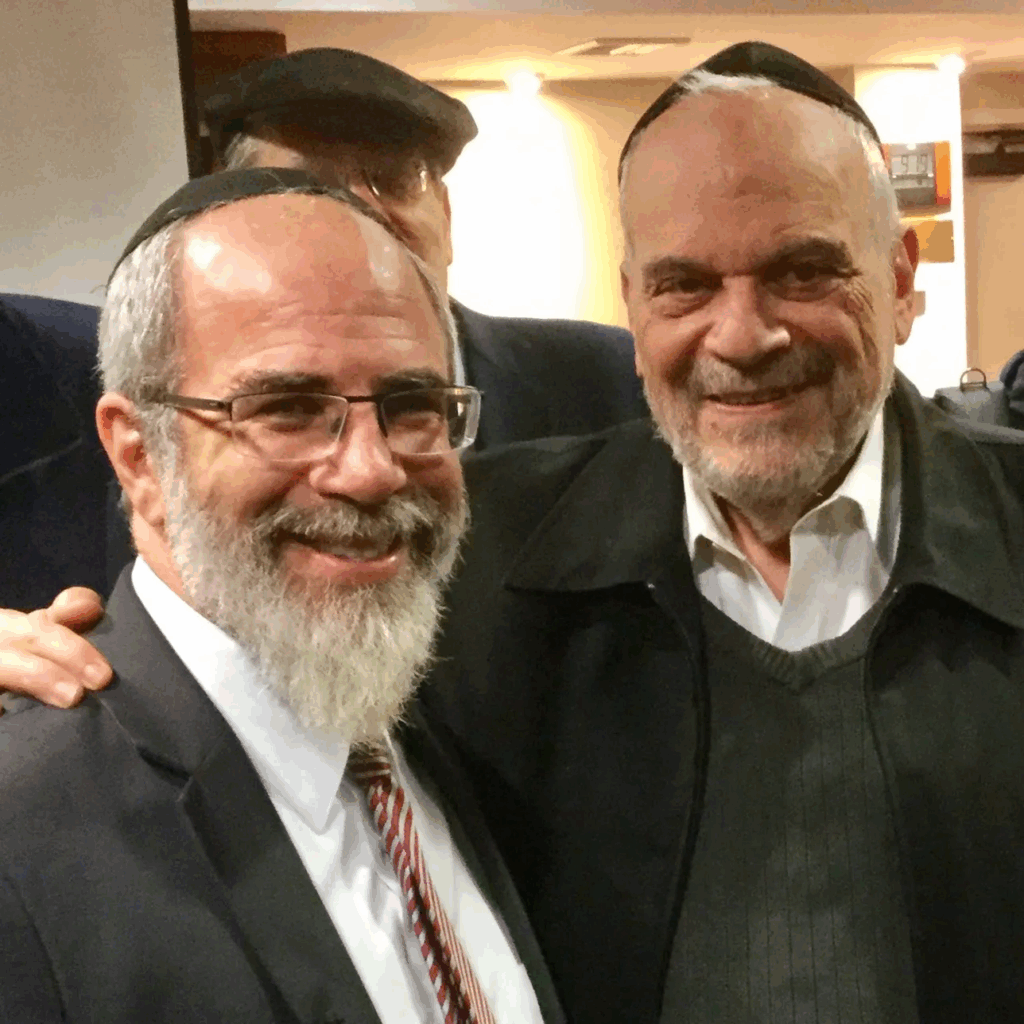From a new vantage point in Jerusalem, he wrote about the dangers facing Israel and the antisemitism of its enemies.
“The more I read and study Jewish history, the clearer it becomes that there is an Author and Planner, Who guides [the People of] Israel to its destiny.”
— Rabbi Berel Wein (October 1990)
Rabbi Berel Wein, a Chicago-born pulpit rabbi and rosh yeshivah (head of a yeshiva), gained widespread recognition within the American Orthodox community for his landmark 1990 history, Triumph of Survival: The Story of the Jews in the Modern Era 1650-1990. He passed away, at the age of 91, on Aug. 16 in Jerusalem, the city he held so close to his heart.
His influence extended well beyond his written works, with his contributions as an educator, author and passionate Zionist shaping the Jewish community for decades. Yet one aspect of his legacy has been notably overlooked in many tributes to his life: his firm opposition to the so-called “two-state solution” for Israel and Palestine.
In 1997, Wein made aliyah, leaving Monsey, N.Y., for Jerusalem at the age of 63. Though many would have retired at this stage in their careers, the rabbi remained as active as ever, continuing to write, teach and speak on issues of Jewish history and Israel.
Trained as a lawyer, his journey into the rabbinate was atypical, though his impact on the Jewish community was unparalleled. His history of the Jewish people became a critical reference point for generations, while his weekly Torah commentaries, published in outlets such as The Jerusalem Post, earned him further recognition.
Wein’s commitment to Israel was rooted in his personal beliefs as well as his understanding of Jewish history. In his 1990 book, Triumph of Survival, he wrote about the rise of Jew-hatred in the post-Auschwitz world, pointing to the U.N. General Assembly’s infamous resolution in 1975 equating Zionism with racism.
President Herzog visited the shiva for Rabbi Berel Wein zt”l.
— David/Dovid Bashevkin (@DBashIdeas) August 18, 2025
Some fascinating stories and anecdotes: pic.twitter.com/RhzAZwalwd
He observed, “Thus was antisemitism legitimized in the post-Auschwitz world.”
His opposition to antisemitism was inseparable from his belief in a strong, secure Israel. He viewed the country as not only a refuge for Jews but as the essential foundation for Jewish survival in the modern world.
But it wasn’t only his grasp of history that distinguished him. His views on the contemporary political situation, particularly the threats faced by Israel, were sharp and unwavering. Unlike many American Zionists, Wein took the bold step of moving to the Jewish state, directly engaging with the realities of Israeli security and politics. From his vantage point in Jerusalem, he frequently wrote about the dangers facing Israel and the antisemitism of Zionism’s enemies.
One of Wein’s most striking criticisms was aimed at the hypocrisy he saw in global attitudes toward Israel. In June 2010, following the (first) Gaza flotilla incident, he wrote: “A Jewish member of the United States Congress declared after the Gaza flotilla incident that he was now ashamed of being Jewish. Of course, he, like unfortunately many other Jews, has no real connection to Jewish practice, tradition or behavior.”
Wein saw such statements as emblematic of the deep disconnect between Jewish identity and the political forces that often sought to undermine Israel’s legitimacy.

He also expressed his disillusionment with Israeli politics, particularly regarding the abandonment of Jewish communities in Gaza and the West Bank. In June 2012, he wrote: “We distrust all of our political leaders with equal disdain and doubt their motives and schemes. They betray us on a regular basis—just ask the dispossessed of Gush Katif and now of Beit El.”
For Wein, this loss of Jewish land was not just a political issue; it was a betrayal of Israel’s future and security.
Wein’s opposition to the so-called “two-state solution” was grounded in his understanding of the hatred harbored by the PLO/Fatah leadership that to this day controls the Palestinian Authority. In December 2012, he described the Palestinian Arab political landscape as fragmented and unstable, stating: “(T)he Palestinians … have two governing bodies, one in Gaza ruled by Hamas and the other in portions of the West Bank ruled by Fatah. In spite of all of the trappings of sovereignty, neither entity seems to be interested in or engaged in state-building.”
For Wein, the goal of these entities was not peace or coexistence, but rather the destruction of the State of Israel itself. He warned that the international community, by focusing on a two-state solution, was ignoring the true nature of the threat to Israel’s existence.
The rabbi’s message was clear: Israel’s survival was inextricably linked to the unity of the Jewish people and its territorial integrity, which must include secure borders. He often emphasized that the Jewish future was bound up with the success of the Jewish state. As he wrote in March 2014: “The reality of the existence of the State of Israel and that it is now the home of over 6 million Jews … is completely ignored.”
This stark reality, in his view, required a steadfast commitment to the safety and security of the Jewish people in Israel, regardless of international pressure or political schemes.
The rabbi lived a life marked by a deep faith in God, a love for Jewish history, and an unwavering commitment to the security and future of Israel. His teachings continue to resonate with Jews around the world, and his legacy endures in the hearts and minds of those who followed his work and thought.
May Rabbi Wein’s words inspire and guide us in the years to come, reminding us of the importance of unity, faith, and the safety of the Jewish state.
Moshe Phillips is the national chairman of Americans For A Safe Israel (AFSI: www.AFSI.org), a leading pro-Israel advocacy and education organization.
** This is the article originally published on JNS.org but shared with us by the author





